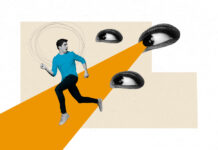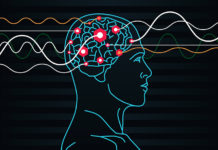Tweeting While Psychiatry Burns
Part one of a lecture given at a British Neuropsychiatric Association meeting on February 22 under the heading of Psychopharmacology: 1952–2017. In slide 2, you see Tokyo University on fire. The students have occupied the Department of Psychiatry and stay for ten years.
Postpartum Depression: Is Brexanolone the Answer?
After three randomized trials inclusive of only 247 women, and with side effects that include loss of consciousness, brexanolone has been approved for the treatment of postpartum depression. Because of the drug’s risk profile, women must receive the 60-hour infusion under medical supervision and “cannot function as her child(ren)’s primary caregiver.”
Access Denied: Victims of Prescribed Harm Are Abandoned by Psychiatry
Harmed patients are frequently unable to control the narrative of their own treatment and are subject to gaslighting, dangerous medical advice, and termination.
The Field of Mental Health Has Gone Astray, But We Can Fix It
People should have real choice. The research and knowledge about how to work differently are already there. Now we need politicians and policymakers to force the change and make it happen in the established services. Mad in Norway will be a leading voice in ensuring this change.
The Icarus Project: One Very Good Reason I Sleep Better at Night!
"You are not alone." If you are mad, that is the Icarus Project's bold promise to you. Every time I read it, it moves...
Students Don’t Need Spying, They Need Trust
Surveillance exacerbates anxiety, destroys trust in relationships, and diverts money away from effective treatment.
Insane Medicine, Chapter 6: Neoliberalism and the Compare-and-Compete Society
Neoliberalism teaches people that suffering has nothing to do with the inequality they experience, but that it comes from their own individual failures of body and mind, and requires "experts" to identify and treat it.
I Set Up a Suicide Crisis Centre to Provide the Opposite of What I...
Our approach is to openly care about our clients and empower them as much as possible. It's vital that clients know we care about their survival.
I Will Not Abandon You
My tipping point came last week after learning about the killing of 3 police officers in New Orleans, which had followed very shortly after the murder of five police officers in Dallas. I felt a deep and ancient fear and anxiety rumbling within. I wondered if others felt this tremblement de terre - this inner earthquake. My heart aches from the pain inflicted on others, as well as experienced by the individuals who acted out their fear in a murderous rampage.
Trapped
Back in 1983, I put myself in a mental ward. I desperately wanted help with my eating disorder, but no one took these types of problems seriously back then. The ward was rather nice, so I returned many times. Nothing good ever came of it, but I always hoped this time, it will do some magic. Every time I left, I'd realize my eating problems hadn't been solved at all.
People Who Find Psychiatric Drugs Helpful
On July 28, I published a post called Simon Says: Happiness Won't Cure Mental Illness. The article was essentially a critique of a post written by British psychiatrist Simon Wessely, that essentially said that all psychiatric treatment alleviates suffering and makes people happier. The falsity and self-serving aspect of this contention is glaringly obvious, and I drew attention to this. My essential point is this: psychiatric drugs; illegal street drugs; alcohol and nicotine, all have in common that they confer a temporary good feeling. That's why people use them. But they also have in common that they are toxic substances, and if taken in sufficient quantity over a long enough period, they will inevitably cause organic damage.
The Unintended Consequences of Colorado’s “Social Experiment”
The lack of any regulations on the potency of THC in marijuana has allowed the cannabis industry to increase the potency to astronomical proportions, resulting in a burgeoning public health crisis. Many people seem to lack a true understanding of the potential negative consequences of the higher-potency THC.
Adam Maier-Clayton: Assisted Suicide and Mental Illness
If we describe “death with dignity” as a benefit, a good thing, a release and relief and a mercy for people with chronic unbearable and unmanageable pain, why do we also describe exclusions from assisted suicide for people with mental illness as a protection rather than discrimination?
Psychiatrists and Open Dialogue
Please join our international panel of psychiatrists on Friday, February 12 at noon Eastern U.S. time (5:00 pm London time) to discuss the crucial questions of bringing Open Dialogue to a world in crisis.
Suicides Increase After National Suicide Prevention Introduced
Researchers have consistently found increasing psychiatric services associated with higher suicide rates.
Future of Mental Health Interview Series: Interview with Joanna Moncrieff on The Myth of...
The Future of Mental Health interview series continued this past week with many interesting interviews: Claudia Gold on The Silenced Child; Bill D. on Alcoholics Anonymous; Jackee Holder on Life Coaching and Emotional Health; Rorie Hutter on Innisfree Village; Lori Sylvester on residential treatment for adolescent girls; Joanna Moncrieff on The Myth of the Chemical Cure; and Rosie Kuhn on Transformation Coaching. Below is the Joanna Moncrieff interview. Below that are links to the other interviews and a link to a roster of the whole series.
Hypotheses, Scientific Evidence, and On Being Compared to an AIDS Denier
In today’s Boston Globe (April 14), Dr. Dennis Rosen, a pediatric lung and sleep specialist at Children’s Hospital in Boston, reviews my new book,...
Neurofeedback is Not For Everyone: The Dangers of Neurology
One thing I noticed, from the moment that I stepped out of my psychiatrist’s office, was how strangely blank and yet clear my mind was. I felt surprisingly calm and relaxed, and I decided to go back for another treatment the next week. What I couldn’t have known then was that after that next “treatment,” life would be completely destroyed for me.
Critical Psychiatry Textbook, Chapter 11: Dementia
"You should not talk to your doctor about dementia drugs because your doctor is likely to mislead and harm you. These drugs should not be used by anyone to prevent or treat dementia."
BBC Interview with Lucy Johnstone from British Psychological Society
Lucy Johnstone from the British Psychological Society on the influential BBC radio news programme, Today (13th May 2013), a great room 101 on changing...
National Peer Certification
Health disparities between the seriously persistent mentally ill (SPMI) population and general population exist which are alarming (MHA, 2008). A report issued by the...
Rethinking Mental Health and Drug “Therapy” for Children
A group of caring and concerned experts, specializing in mental health, child development, research, and parenting, have started a united movement to help families nationwide. Our effort is called Project #ForTheKids, and our goal "is to dramatically slow down the trend of over diagnosing, labeling and medicating children in the name of mental health."
When I Grow Up, I Want to be a Psychiatrist: Redefining the Profession for...
A few days ago, I was sitting next to my wife on the couch reading Spark: The Revolutionary Science of Exercise and the Brain written by John Ratey, a professor of Psychiatry at Harvard University. As the title states, it goes well beyond the adage that exercise is good for you, and takes a much deeper, and more scientific look at how research in this area can be (and is in certain places) used to address all kinds of everyday needs. I found myself saying out loud, “Now this what psychiatry should be doing.”
Antidepressants and Preterm Birth: More Concerning Findings
An important new research paper was published this week on the topic of antidepressant use during pregnancy and preterm birth. The issue is a crucial one as preterm birth (i.e. birth at less than 37 weeks gestational age) is one of the most challenging problems facing the obstetrical community today. Rates of preterm birth have been increasing over the past two decades. Babies born early have increased risks of morbidity and mortality. At the same time, rates of antidepressant use during pregnancy have increased dramatically.
Stop Shocking and Torturing Women – My Sisters
Think of all those women who have undergone or will undergo electroshock and suffer severe losses in memory, intelligence, special skills, creativity. Women too disabled by shock to pursue promising careers. Women who suddenly die after being shocked. Electroshock is torture, and informed consent in psychiatry is a myth and a lie.























